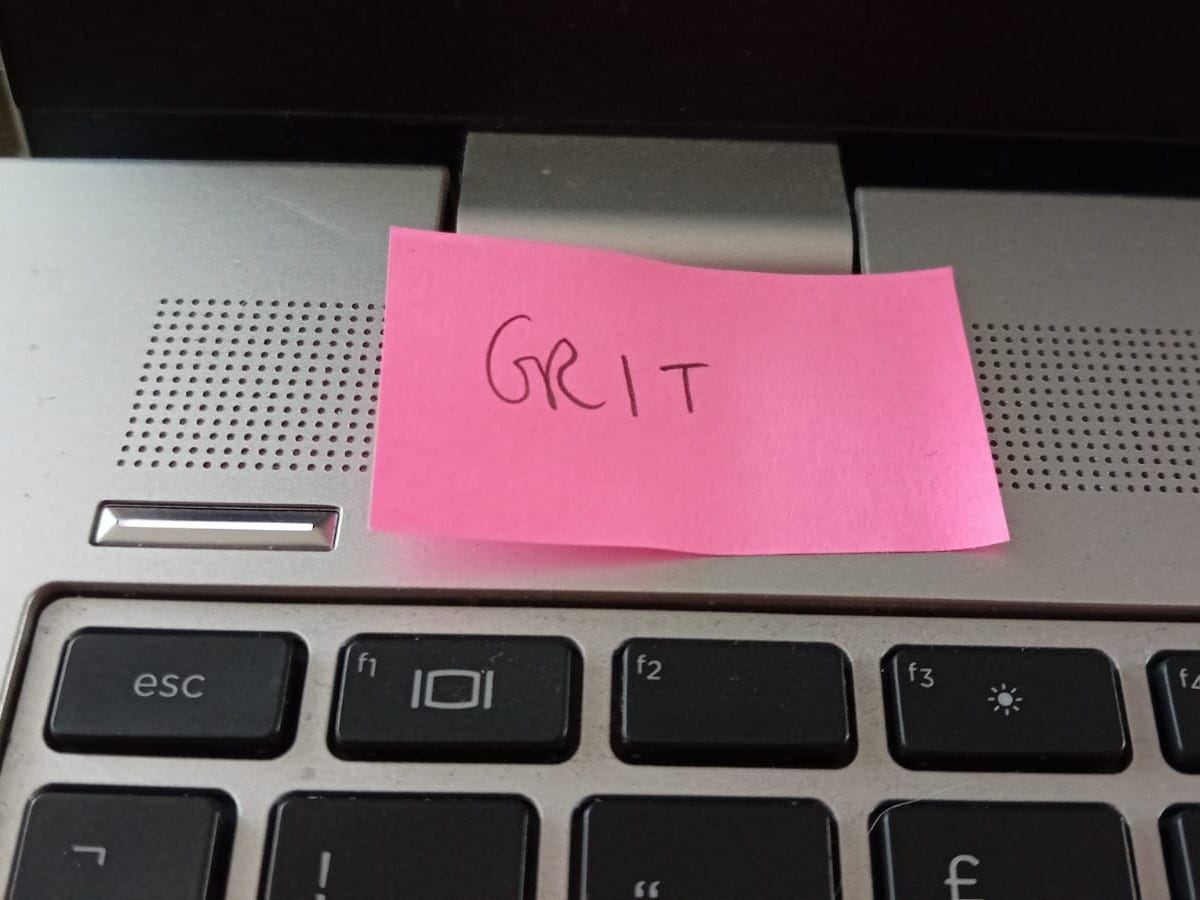These two homebrew rules are transforming my game
Grappling with grit: Notes from Curse of Sigil - Session #8
When our first campaign came to an end after four years, I knew there were mistakes I needed to fix.
Most of them came from four years of learning on the job, elements of world-building and narrative that had never landed as I hoped, but some of them were caused by the rules of the game itself.
“Change system!” you might cry. That was an option I considered, but frankly I like 5e, my players like 5e and there wasn’t one system that we were collectively as excited about. I also honestly believe that homebrew rules is part of the lifeblood of any good system, that you always have the option to adapt and evolve any game to suit your group and the story you are telling.
I pitched 11 homebrew rules to my players. Some as simple as using standard array, others much more fundamental to the player experience, like banning Darkvision. My players agreed to try all of them.
A couple have been forgotten already, some are still in development, but I think two have been revelations. Today I’ll explain our Grit rules and later in the week I’ll tell you about our harvesting and crafting mechanics.
Get Lucky
The grit rule was inspired by the ‘luck points’ from Tales of the Valiant, which I first heard about from Sly Flourish (I think; I now can’t find the video, which makes me concerned it was someone else who deserves the credit!)
Luck points are TotV’s answer to inspiration. Every time a player fails a D20 test (attack roll, ability check, saving throw) they gain a luck point. They can then expend any number of luck points to boost a subsequent D20 test by the same number. If a player has five luck points and would gain a sixth, they lose them all and instead gain 1D4+1 luck points.
It’s a simple system, but incredibly effective at the table. Some might find it a little too gamey for their tastes, but I like the fact that it instantly counteracts a bad night with your dice. The dice should tell stories, but no-one wants to read a tragedy where you can’t get a result above double figures.
It also reminded me of ‘adversity tokens’ in Kids on Bikes. These work under the same principle (although they have more applications in that game) but you also have the opportunity to gift Adversity tokens to your allies at a ratio of two-to-one.
So to recap, if Dave the Dwarf wants to climb a wall (Athletics check DC10) but only rolls an 8, he can expend two tokens to boost his check to meet the DC. If he has only one token available, Gemma the Gnome can gift him two of her tokens to boost the check by one additional point.
True Grit
To include this rule at my table, I added a few more details. Changing the name was an obvious choice to avoid confusion with the Lucky feat in 5e, but ‘grit’ also felt like a good match for our dark fantasy campaign.
I also wanted to give an additional option for expending and gaining these points at the table - especially as it was replacing inspiration. I allow my players to expend three grit points to re-roll any D20 test that they have failed. Again, I think I got this idea from Sly Flourish, but without being able to find his video I’m not sure.
I also give out Grit points for good roleplay, imaginative ideas, or other cool moments that I feel are worthy of reward. Players start the session with one grit point if they arrive before me, or within the first five points (known affectionately by my players as ‘good boy points’).
Playtest results
After eight sessions of our new campaign, I finally felt the Grit rule hit it’s stride last session. That’s because the biggest problem (with any rule, homebrew or official) is remembering to use it.
The sticky note above is one of several posted around my GM set-up reminding me to hand the tokens out, but the more I do so, the more my players use their tokens and seeing those results definitely helps me to remember. We had some particularly bad rolls on Friday night, but several turns in combat were rescued from the jaws of defeat by boosting or re-rolling crucial D20s.
The main reason I’ve persisted with the rule was an early scenario that revealed the potential it had. In Session 2, my players were trying to recruit volunteers to help them fight off a horde of Kua-Toa. I told my players they could make a group persuasion check to convince the villagers to take part in the defence, with one volunteer recruited for every multiple of ten they achieved.
After the initial rolls, Grit points began to fly round the table like the stock exchange. My players realised that expending their available points to help one of them re-roll, had the potential to gain them more volunteers than simply boosting the roll. The gamble paid off and their army of defenders swelled by three instead of the guaranteed one, transforming their odds in the combat next session.
Show your grit in the comments
I’d love to hear whether this homebrew rule might work for your table, or how you would improve upon it. If you have a totally different rule that achieves the same results, please tell me about that too!
Leaving a comment, liking or restacking this post is one of the most powerful things you can do to help this community grow - my thanks if you have time to do so.






I may codify “grit” in my game, but call it something like “favour” instead.
Great article!
I've tied my meta currency to level as a cap on the number that can be held at a time as my solution to hoarding them.